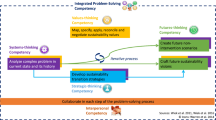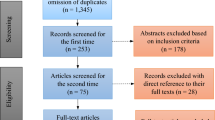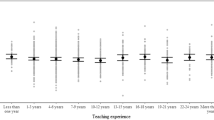Abstract
Which competences do professional adult educators need? This research note discusses the topic from a comparative perspective, finding that adult educators’ required competences are wide-ranging, heterogeneous and complex. They are subject to context in terms of national and cultural environment as well as the kind of adult education concerned (e.g. basic education, work-related education etc.). However, it seems that it is possible to identify certain competence requirements which transcend national, cultural and functional boundaries. This research note summarises these common or “core” requirements, organising them into four thematic subcategories: (1) communicating subject knowledge; (2) taking students’ prior learning into account; (3) supporting a learning environment; and (4) the adult educator’s reflection on his or her own performance. At the end of his analysis of different competence profiles, the author notes that adult educators’ ability to train adult learners in a way which then enables them to apply and use what they have learned in practice (thus performing knowledge transfer) still seems to be overlooked.
Résumé
Compétences fondamentales des éducateurs d’adultes – De quelles compétences ont besoin les éducateurs d’adultes professionnels ? Cette note de recherche analyse le sujet dans une perspective comparée et constate que les compétences requises chez les éducateurs d’adultes sont diversifiées, hétérogènes et complexes. Elles dépendent du contexte en terme d’environnement national et culturel ainsi que du type d’éducation des adultes concerné (enseignement de base, enseignement professionnel, etc.). Néanmoins, il semble possible d’identifier des compétences indispensables qui dépassent les frontières nationales, culturelles et fonctionnelles. La présente note de recherche synthétise ces exigences communes ou fondamentales, en les classant selon quatre sous-catégories thématiques : 1) communiquer des connaissances sur un sujet, 2) tenir compte des acquis des apprenants, 3) favoriser un environnement propice à l’apprentissage, et 4) mener une réflexion sur sa prestation d’éducateur/trice d’adultes. À l’issue de son analyse des différents profils de compétences, l’auteur relève qu’une capacité semble aujourd’hui encore négligée chez les éducateurs d’adultes : celle consistant à former les apprenants adultes de telle sorte qu’ils puissent appliquer et utiliser dans la pratique ce qu’ils ont appris (réalisant ainsi un transfert de connaissances).
Similar content being viewed by others
Notes
A Delphi study is a research method where experts are asked for their views on a particular aspect of their field of expertise. In a systematic, multi-stage progression, this method is repeated in several rounds. The purpose is to arrive at a kind of distilled experts’ consensus which can be used for predicting trends, probable developments and likely innovations. While it is this aspect of forecasting which led to this method being named after the ancient Greek Oracle of Delphi, its name is not undisputed due to its somewhat unscientific/occult connotations.
“Validpack was developed within the Validation of Informal and Non-Formal Psycho-Pedagogical Competencies of Adult Educators (VINEPAC) project, coordinated by the Romanian Institute for Adult Education (IREA) at West University of Timisoara, Romania. Validpack is a portfolio of validation instruments, creating a framework for the documentation and evaluation of adult educators’ competences, no matter whether they have been acquired in formal, non-formal or informal learning contexts” (Sava and Shah, 2015, p. 551).
References
Bechtel, M. (2008). Competence profiles for adult and continuing education staff in Europe: Some conceptual aspects. In E. Nuissl & S. Lattke (Eds.), Qualifying adult learning professionals in Europe (pp. 45–62). Bielefeld: W. Bertelsmann.
Bernhardsson, N., & Lattke, S. (2011). Core competencies of adult learning facilitators in Europe – Findings from a transnational Delphi survey conducted by the project “Qualified to teach”. Bonn: QF2TEACH partnership/German Institute for Adult Education – Leibniz Centre for Lifelong Learning (DIE; project coordinator). Retrieved 3 April 2016 from http://asemlllhub.org/fileadmin/www.dpu.dk/ASEM/events/RN3/QF2TEACH_Transnational_Report_final_1_.pdf.
Bernhardsson-Laros, N., & Lattke, S. (2015). Core competences of adult educators in Europe – findings from a European research project. In E. Nuissl, P. A. Reddy, S. Lattke, & D. U. Devi (Eds.), Facets of professionalization among adult education teachers: Eurasian perspectives (pp. 245–264). New Delhi: Sarup Book Publishers.
CEDEFOP (European Centre for the Development of Vocational Training) (2013). Trainers in continuing VET: Emerging competence profile. Luxembourg: Publications Office of the European Union.
CEDEFOP & European Commission (2014). Guiding principles on professional development of trainers in vocational education and training. Luxembourg: Publications Office of the European Union. Retrieved 5 April 2016 from http://www.cedefop.europa.eu/files/TWG_Guiding_principles_on_professional_development_of_trainers_in_VET_FINAL.pdf.
Clarke, N. (2013). Transfer of training: The missing link in training and the quality of adult social care. Health and Social Care in the Community, 21(1), 15–25.
Daniel, R., & Rose, H. (1988 [1982]). Comparative study of adult education practitioners and professors on future knowledge and skills needed by adult educators. In S. Brookfield (Ed.), Training educators of adults: The theory and practice of graduate adult education (pp. 168–181). London and New York: Routledge.
Eraut, M. (1994). Developing professional knowledge and competence. London and Washington: Falmer Press.
Freynet, P. (2008). Modern processes of production, distribution and use of knowledge. In E. Nuissl & S. Lattke (Eds.), Qualifiying adult learning professionals in Europe (pp. 21–31). Bielefeld: W. Bertelsmann.
Harris, D. N., & Sass, T. R. (2011). Teacher training, teacher quality and student achievement. Journal of Public Economics, 95(7–8), 798–812.
Jarvis, P., & Chadwick, A. (Eds.). (1991). Training adult educators in Western Europe. London: Routledge.
Lattke, S., & Zhu, H. (2010). Competencies of teachers and trainers in adult education – Europe and China. In R. Egetenmeyer & E. Nuissl (Eds.), Teachers and trainers in adult and lifelong learning: Asian and European perspectives (pp. 95–104). Frankfurt am Main: Peter Lang.
Rossman, M. H., & Bunning, L. R. (1988 [1978]). Knowledge and skills for the adult educator: A Delphi study. In S. Brookfield (Ed.), Training educators of adults: The theory and practice of graduate adult education. London and New York: Routledge.
Sava, S. L., & Shah, S. Y. (2015). Challenges in implementing national systems of competence validation with regard to adult learning professionals: Perspectives from Romania and India. International Review of Education, 61(4), 547–562.
Surikova, S., Zuzeviciute, V., Reddy, P., & Devi, D. (2015). Competencies of adult education facilitators – transnational comparison (India, Lithuania and Latvia). In E. Nuissl, P. A. Reddy, S. Lattke, & D. U. Devi (Eds.), Facets of professionalization among adult education teachers: Eurasian perspectives (pp. 49–65). New Delhi: Sarup Book Publishers.
van Dellen, T. (2015). The competencies of the European adult and continuing educator from the perspective of different work domains. In E. Nuissl, P. A. Reddy, S. Lattke, & D. U. Devi (Eds.), Facets of professionalization among adult education teachers: Eurasian perspectives (pp. 106–127). New Delhi: Sarup Book Publishers.
Wahlgren, B. (2015). Developing professional competence: Experiences from Denmark. In E. Nuissl, P. A. Reddy, S. Lattke, & D. U. Devi (Eds.), Facets of professionalization among adult education teachers: Eurasian perspectives (pp. 170–181). New Delhi: Sarup Book Publishers.
Author information
Authors and Affiliations
Corresponding author
Rights and permissions
About this article
Cite this article
Wahlgren, B. Adult educators’ core competences. Int Rev Educ 62, 343–353 (2016). https://doi.org/10.1007/s11159-016-9559-4
Published:
Issue Date:
DOI: https://doi.org/10.1007/s11159-016-9559-4




